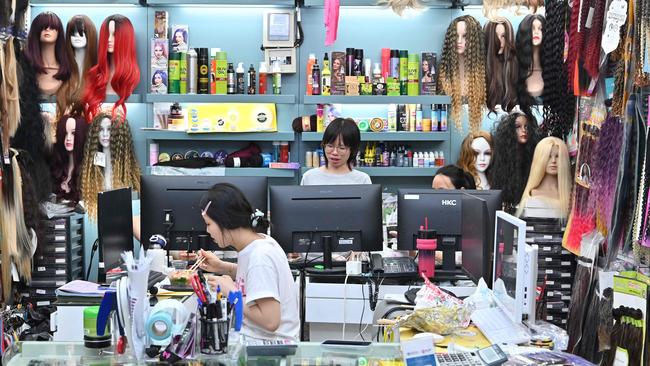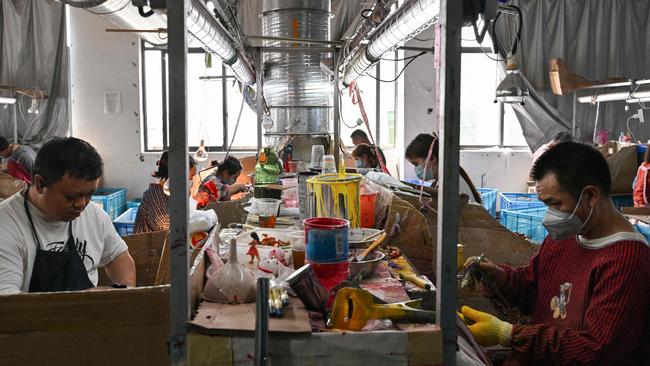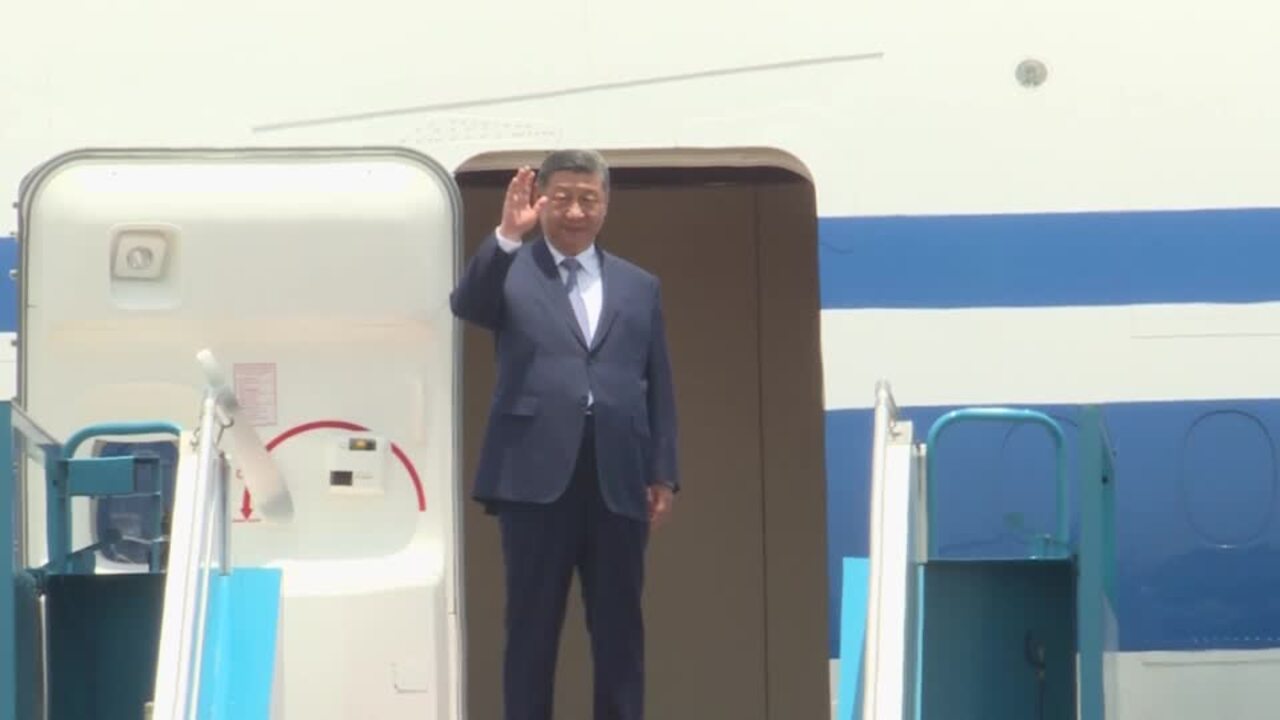‘The sky won’t fall’: Chinese exporters explore grey channels to dodge tariffs
Beijing says it will diversify from America unless Donald Trump ‘corrects’ his ‘erroneous’ tariffs even as exporters look at siphoning goods through other countries to avoid whopping levies.

Beijing says it will diversify from America unless Donald Trump “corrects” his “erroneous” tariffs even as exporters explore grey channels to sell to the US amid research showing millions of Chinese workers would be hit by the loss of their biggest market.
Advisers in the Trump administration continue to double down on their tough approach to China as the world’s two biggest economies continue a bruising trade war that has seen each side impose tariffs above 100 per cent on the other, causing huge pain to businesses in both countries.
Trump has singled out China for treating America “the worst” and his advisers have flagged more tariffs would be announced in industries with national security concerns as it continues its efforts to restore manufacturing.
“The example I like to use is, if you have a cannon, but you’re getting the cannonballs from an adversary, then if there were to be some kind of actions, you might run out of cannonballs,” Kevin Hassett, the director of the White House National Economic Council said on Monday.
“And so you can put a tariff on the cannonballs,” he said.
China’s General Administration of Customs director of statistics Lyu Daliang on Monday said despite the whopping American tariffs, “the sky won’t fall” for Chinese exporters. He said China would continue its “steady progress in diversifying its foreign trade”.
China’s government has seized on the Trump administration’s carve out of smartphones and other electronics from its near 150 per cent tariffs on Chinese exports and called on Washington to rescind the remaining tariffs.
“This is a small step by the US in correcting the erroneous unilateral practice of ‘reciprocal tariffs,’” said a spokesman for China’s Commerce Ministry.
“As an old Chinese saying goes, ‘the one who tied the bell must untie it,” the Chinese government spokesman added.

Chinese state media has mocked Washington’s “own goal” as Americans fret about rising prices on consumer goods.
However many trade-exposed businesses in China complain of a shuttering of orders as the world’s biggest market has been all but closed to Chinese manufacturers. “In this environment, no one wins,” Zhang Huiquan, president of smart glasses maker Kopin Corp, told business publication Caixin.
About 15 per cent of China’s exports go to America, although much of its other trade to Southeast Asia and Mexico is of nearly finished goods that ultimately are sold to America.
Trump administration officials have threatened to clamp down on countries that facilitate Chinese trade into America, although they have not explained how they would.
America’s current exorbitant tariffs on Chinese exports have created a huge opportunity for traders to siphon goods through other countries that are only subject to America’s 10 per cent tariff baseline.
An employee at an international freight forwarding company told Chinese business publication Caixin that “washing and changing labels” on made-in-China goods at ports was likely to surge. “They think there is money to be made,” the freight forwarding employee told the masthead.
New research by analysts at Goldman Sachs said the jobs of around 20 million people, about three per cent of China’s workforce, depended on exports to America.
Bloomberg Economics has estimated the loss of shipments to America risked as much as three per cent of China’s gross domestic product.

China’s President Xi Jinping on Monday visited Vietnam, which since Trump’s first term has been a popular destination for Chinese exporters looking to evade America’s tariffs on China.
Xi is using his tour of South East Asia this week, which will also include Cambodia and Malaysia, to position China as a champion of international trade. “Trade war and tariff war will produce no winner, and protectionism will lead to nowhere,” he said in a signed article published in Vietnamese papers on Monday.
Meanwhile in Beijing, his officials were preparing further policies to impose pain on America and try to force it to negotiate. Regulations are being drafted for a new regime that will allow Beijing to tighten restrictions for American buyers of critical minerals and rare earths whose production China dominates.
Chinese produced heavy rare earths are required for powerful magnets, which are used in car production and could halt American production. They are also essential components in drones, robots, electric cars, missiles and spacecraft.
Ryan Hass, an expert on China at the Brookings Institution, said Beijing was tailoring retaliatory actions that would dial up discomfort for US consumers and crimp supplies of key inputs to the American economy.
“Rightly or not, Beijing believes its political system is more unified, hardened and disciplined than the US government to withstand trade war pressure,” said Hass, after a ten day trip to China meeting with government connected advisers.
“They’re signalling they will hold firm and wait for Trump to shift course. I don’t expect either side to blink soon.”




To join the conversation, please log in. Don't have an account? Register
Join the conversation, you are commenting as Logout